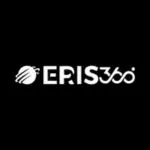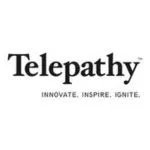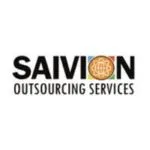
Top B2B PR Agencies
Choosing the right B2B PR agency is crucial for building your brand’s reputation and driving business growth. Our expertly curated list features the top B2B PR agencies, ranked based on client reviews, industry expertise, and proven success in strategic communications. Whether you need media relations, thought leadership, or crisis management, these agencies specialize in delivering impactful PR solutions. Compare agencies based on ratings, customer feedback, and services to find the perfect partner for your brand. Explore our top picks and select a trusted PR agency to enhance your visibility, credibility, and influence in the competitive B2B landscape.
List of the Best B2B PR Firms | Top B2B PR Agencies in the World

-
Employees: 11 to 50
-
Min. Project amount: $10,000
-
Country: NY, USA

Cyber Nest
-
Employees: 11 to 50
-
Min. Project amount: $25-$49/hr
-
Country: NY, United States
-
Employees: 101 to 250
-
Min. Project amount: $10000
-
Country: Karnataka, India
-
Employees: 11 to 50
-
Min. Project amount: $1,000+
-
Country: Singapore

Telepathy Infotech
-
Employees: 51 to 100
-
Min. Project amount: $5,000+
-
Country: Casper, WY

Onex Software
-
Employees: 11 to 50
-
Min. Project amount: $10,000+
-
Country: İzmir, Türkiye

Saivion India
-
Employees: 11 to 50
-
Min. Project amount: $1,000+
-
Country: New Delhi, INDIA

SAT Microsystems
-
Employees: 251 to 500
-
Min. Project amount: $250,000+
-
Country: Jeddah, Saudi Arabia

Elite M Commerce
-
Employees: 101-250
-
Min. Project amount: Undisclosed
-
Country: NJ, United States

Ecom Buzz
-
Employees: 0 to 10
-
Min. Project amount: $1,000+
-
Country: Kolkata, India
1.What Should I Look for When Choosing a B2B PR Agency?
Selecting the right B2B PR agency is crucial for building a strong brand presence, establishing credibility, and generating media coverage. Here are key factors to consider when evaluating PR agencies:
1.1 Industry Experience & Expertise
Does the agency specialize in B2B PR, or does it focus more on B2C brands?
Do they have experience working within your specific industry (e.g., tech, finance, healthcare, manufacturing)?
Have they successfully handled PR campaigns for businesses similar to yours?
Can they provide case studies or examples of past successes?
1.2 Media Connections & Journalist Relationships
Does the agency have strong connections with top-tier business publications like Forbes, Bloomberg, TechCrunch, or industry-specific trade journals?
Can they secure media placements in relevant online and print publications?
Do they have a network of journalists, bloggers, and influencers who trust their pitches?
Have they arranged media interviews, podcast features, or conference speaker opportunities for clients?
1.3 Client Portfolio & Case Studies
What companies have they worked with in the past, and what were the results?
Do they have testimonials or reviews from satisfied B2B clients?
Can they share detailed case studies showing how their PR efforts led to measurable brand growth?
Have they successfully handled PR crises or reputation management for businesses?
1.4 Custom Strategies vs. One-Size-Fits-All Approach
Does the agency tailor PR campaigns to align with your business goals, target audience, and brand identity?
Do they take the time to understand your unique value proposition and competitive landscape?
Can they adapt PR strategies for different channels, including online media, print publications, and social media?
Are they flexible in adjusting campaigns based on performance data and feedback?
1.5 Performance Measurement & Reporting
How does the agency track and measure the success of their PR campaigns?
Do they provide regular reports on media mentions, press coverage, and audience engagement?
What key performance indicators (KPIs) do they use, such as earned media value, website traffic, and lead generation?
Do they offer insights and recommendations to improve future PR efforts?
Final Takeaway
Choosing the right B2B PR agency requires thorough research and evaluation. Businesses should focus on industry experience, media connections, proven results, and customized strategies. A strong PR partner will not only secure media coverage but also enhance your brand’s reputation, credibility, and long-term growth.
2.What Services Do Top B2B PR Agencies Offer?
Top B2B PR agencies provide a wide range of services to help businesses build credibility, enhance visibility, and establish industry leadership. Below are the key services they offer:
2.1 Media Relations
Press Releases: Writing and distributing press releases to announce product launches, partnerships, and other significant company news.
Media Outreach: Pitching stories to journalists, bloggers, and editors in top-tier business and industry-specific publications.
Interview & Feature Placement: Securing interviews, expert quotes, and guest features in relevant media outlets.
Editorial Calendar Management: Aligning PR efforts with industry trends and major news cycles for maximum exposure.
2.2 Thought Leadership & Content Marketing
Whitepapers & Industry Reports: Creating in-depth reports that showcase expertise and attract business decision-makers.
Guest Articles & Op-Eds: Publishing thought leadership content in top business and trade publications.
Keynote Speaking & Panel Discussions: Positioning company executives as industry experts through conference appearances.
Podcast & Webinar Participation: Arranging guest speaker opportunities on popular B2B podcasts and virtual events.
2.3 Crisis Management & Reputation Building
Crisis Communication Strategies: Developing proactive plans to handle potential PR crises and reputation threats.
Media Monitoring & Response: Tracking brand mentions and responding to negative press coverage effectively.
Online Reputation Management (ORM): Addressing negative reviews, misinformation, and brand perception issues.
Internal Communication Plans: Helping businesses manage employee and stakeholder communication during crises.
2.4 Social Media PR & Digital Presence
LinkedIn & Twitter Management: Creating and managing content for professional networks to enhance brand credibility.
Influencer & Analyst Relations: Partnering with industry influencers and analysts to amplify brand messaging.
Executive Branding: Building personal brands for CEOs and key executives through thought leadership posts and media features.
Crisis Response on Social Media: Managing social media reputation and responding to public concerns in real time.
2.5 Event PR & Speaking Engagements
Conference & Trade Show PR: Securing speaking slots and media coverage at industry events.
Sponsorship & Brand Partnerships: Helping businesses collaborate with major conferences and industry summits.
Networking & Media Opportunities: Connecting executives with key industry stakeholders, investors, and journalists.
Product Launch & Press Events: Organizing exclusive press events and product launch campaigns to generate media buzz.
Final Takeaway
B2B PR agencies go beyond traditional media coverage—they offer strategic services that build authority, drive engagement, and strengthen brand reputation. Whether through media outreach, thought leadership, or crisis management, the right agency can position a business as a leader in its industry.
3.How Much Does It Cost to Hire a B2B PR Agency?
The cost of hiring a B2B PR agency varies based on the scope of services, the agency’s expertise, and the level of media exposure a business seeks. Understanding pricing structures, budget expectations, and return on investment (ROI) is essential before choosing the right agency.
3.1 Retainer vs. Project-Based Pricing
Retainer Pricing: Many PR agencies charge a fixed monthly fee for ongoing services such as media relations, content creation, and crisis management. This model is ideal for businesses seeking long-term PR support.
Project-Based Pricing: Some agencies offer pricing on a per-project basis, such as launching a new product, running a media campaign, or securing a feature in a top publication.
Hourly or Consultation Fees: Some boutique agencies and consultants charge by the hour for strategic guidance and media outreach efforts.
Performance-Based Pricing: A few agencies work on a pay-for-placement model, charging based on successful media coverage and results.
3.2 Average Cost Range for PR Services
Small Businesses & Startups: Typically spend $3,000 – $7,000 per month for basic PR services, including press releases and media outreach.
Mid-Sized Businesses: Often invest $7,000 – $15,000 per month for more comprehensive PR strategies, including thought leadership, content marketing, and social media PR.
Enterprise-Level Businesses: Large corporations may spend $20,000 – $50,000+ per month for full-service PR campaigns, including global media outreach and crisis management.
One-Time PR Projects: Costs for individual projects, such as a product launch or media event, can range from $5,000 – $25,000+, depending on the complexity and media reach.
3.3 Hidden Fees & Additional Costs
Press Release Distribution Fees: Agencies may charge extra for press release distribution through PR platforms like PR Newswire or Business Wire, which can cost $300 – $8,000 per release depending on word count and reach.
Media Placement Costs: While PR agencies aim for earned media (unpaid coverage), some opportunities in industry magazines or digital platforms may require sponsorship fees or advertorial payments.
Event Costs: If the PR strategy includes conferences, speaking engagements, or networking events, additional expenses may arise for event sponsorships, travel, and promotional materials.
Revisions & Additional Work: Some agencies charge extra for multiple rounds of content revisions, crisis handling beyond the agreed scope, or urgent last-minute projects.
3.4 ROI Considerations: Measuring PR Success
Media Coverage & Mentions: The number and quality of articles, interviews, and press features secured.
Brand Awareness & Reputation: Growth in brand searches, social media engagement, and thought leadership positioning.
Lead Generation & Sales Impact: Tracking website traffic, inbound inquiries, and conversion rates from PR efforts.
Share of Voice in Industry: Comparing media presence with competitors to assess PR effectiveness.
Long-Term Business Growth: Evaluating how PR enhances credibility, trust, and market authority over time.
Final Takeaway
B2B PR agency pricing depends on business size, PR goals, and the level of media influence required. While costs can range from a few thousand dollars to six-figure retainers, businesses should focus on ROI-driven agencies that align with their budget and long-term branding needs.
4.How Long Does It Take to See Results from a B2B PR Campaign?
The timeline for seeing results from a B2B PR campaign varies based on factors such as industry type, newsworthiness, and media strategy. While some PR efforts yield immediate media attention, building a strong brand reputation typically requires a sustained, long-term approach.
4.1 Short-Term vs. Long-Term Impact
Short-Term (1–3 Months): Businesses may start seeing early wins such as social media engagement, initial media mentions, and brand awareness improvements.
Mid-Term (3–6 Months): Companies often secure more substantial media placements, build thought leadership, and gain credibility within their industry.
Long-Term (6–12+ Months): Consistent PR efforts lead to increased brand authority, strong media relationships, and an enhanced industry reputation that attracts leads and partnerships.
4.2 Typical PR Timelines for Key Milestones
Press Release Distribution: 1–2 weeks to draft and distribute, with media pickup possible within days to weeks.
Media Outreach & Placements: 2–6 months to secure interviews, feature articles, and guest contributions in top-tier publications.
Thought Leadership Positioning: 3–9 months to build authority through bylined articles, speaking engagements, and executive profiling.
Crisis Management & Reputation Repair: Immediate response but may take months to fully rebuild brand trust.
SEO & Online Brand Presence Growth: 6–12+ months to see significant improvements in search rankings and organic traffic from PR efforts.
4.3 Factors That Influence PR Success & Timelines
Industry & Competition: Highly competitive industries like tech and finance may require more time to break through media noise.
Newsworthiness: Strong, timely, and unique brand stories gain faster media attention compared to generic company updates.
Media Relationships: Agencies with established journalist connections may secure placements quicker.
Company Size & Reputation: Well-known brands typically get faster media coverage, while startups may take longer to establish credibility.
Consistency & Engagement: Regular press releases, proactive outreach, and ongoing content creation accelerate PR success.
4.4 Measurement Metrics: Tracking PR Campaign Success
Media Coverage & Mentions: Number and quality of articles, interviews, and news features secured.
Brand Awareness & Visibility: Growth in social media engagement, website traffic, and search volume for brand-related terms.
Lead Generation & Sales Impact: Increase in inbound inquiries and conversions from PR-driven traffic.
Share of Voice in the Industry: How often a brand is mentioned compared to competitors.
SEO & Online Authority: Growth in domain authority, backlinks from reputable sites, and improved search rankings.
Final Takeaway
PR is a long-term strategy that requires patience and consistency. While some results, such as press releases and initial media mentions, may happen within weeks, lasting brand authority and strong media relationships take months to develop. Businesses should set realistic expectations and track key performance indicators (KPIs) to measure success over time





